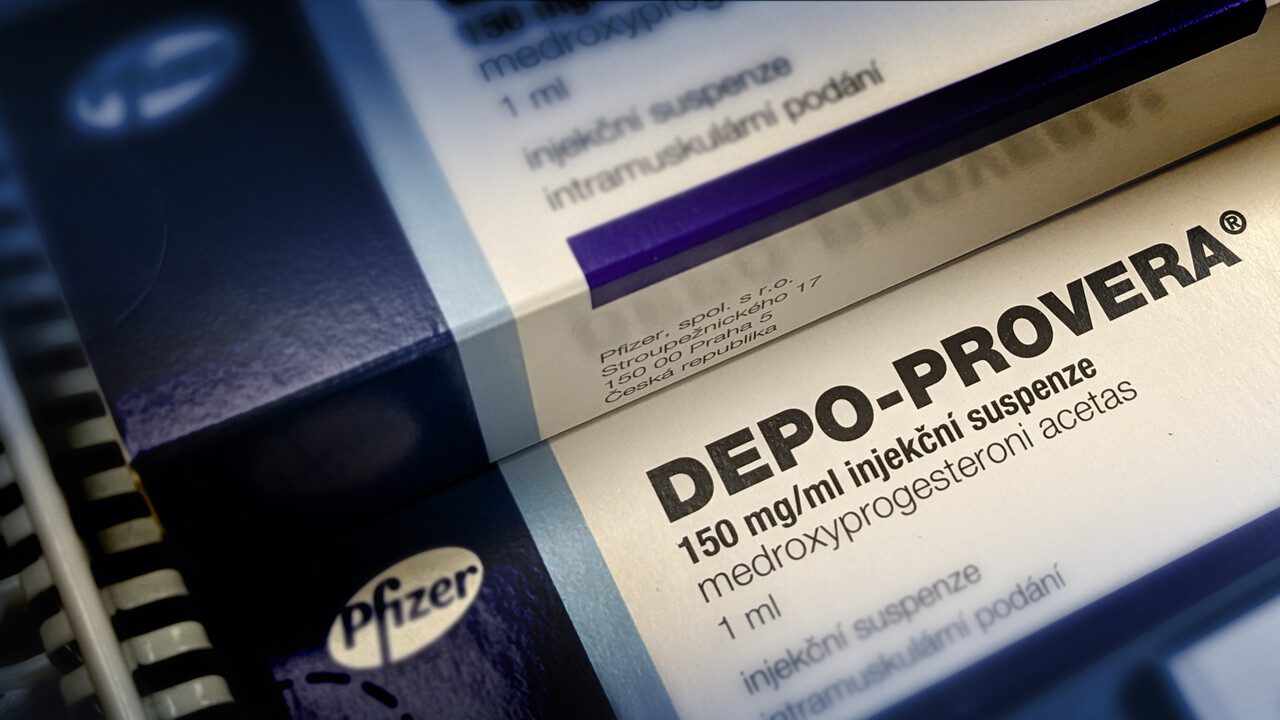
Depo-Provera’s Hidden Risks
Depo-Provera is a birth control shot given either into a muscle or just under the skin every three months. It was approved by the FDA in October 1992 to prevent pregnancy. There are two types of Depo-Provera shots: the 150 mg injection given into a muscle, and the Depo-SubQ Provera 104, a 104 mg injection given just under the skin, which was approved in 2004. Depo-Provera is manufactured by several companies, including Pfizer, Greenstone, LLC, Prasco, LLC (d/b/a Prasco Labs), Pharmacia & Upjohn Co. LLC, and Pharmacia LLC.
Depo-Provera has a black box warning that it shouldn’t be used for more than two years unless other birth control methods aren’t suitable, due to the risk of bone density loss. Despite this, it is sometimes prescribed for longer periods. While the U.S. label doesn’t mention it, the Canadian and European labels warn about a risk of meningioma, a benign tumor in the membranes covering the brain and spinal cord. Recent studies have shown that intramuscular Depo-Provera injections significantly increase the risk of developing meningioma.
Studies & Safety Concerns
For many years, it has been known that there is a link between the use of progesterone/progestin and the growth of meningiomas, which are tumors in the lining of the brain and spine. A study by Russell L. Griffin, titled “The Association between Medroxyprogesterone Acetate Exposure and Meningioma,” found that while oral MPA (medroxyprogesterone acetate) did not increase the odds of developing meningiomas, the injectable form did. Specifically, the study showed a 53% increased risk of meningiomas with injectable MPA, with the risk being higher for cerebral meningiomas and increasing with longer use.
These findings align with previous research, which also indicates a stronger association between injectable MPA and meningiomas with prolonged use. Women should be cautious about using MPA for extended periods, and further research is needed to understand if long-term use affects the severity of meningiomas.
Another recent study also found that hormonal contraceptives, including DMPA (depot medroxyprogesterone acetate), significantly increase the risk of meningiomas, especially with use over 10 to 15 years or more.
Cerebral and Spinal Meningiomas
Meningiomas are tumors that grow in the membranes covering the brain and spinal cord. Symptoms can vary depending on the tumor’s size and location, but they often develop slowly.
Meningiomas are typically identified by an MRI, CT scan, or other brain scan, and often lead to other neurological issues, including seizures, vision loss, and strokes.
- Cerebral meningiomas: These are most frequently benign tumors and grow in the protective layers surrounding the brain. As they grow, they put pressure on the brain which causes severe and debilitating complications. Depending on the location of the tumor, treatment often involves craniotomy, which is a major surgery that can involve post-surgery complications.
- Spinal Meningiomas: A type of tumor that forms in the meninges, the protective membranes covering the brain and spinal cord. These tumors are usually benign. Treatment options often include surgery to remove the tumor and, in some cases, radiation therapy.
Related News
Beasley Allen files lawsuits against JUUL
Beasley Allen, as of press time, has filed six lawsuits on behalf of individuals who…
Amid Congressional investigation, Beasley Allen launches fight to stop JUUL epidemic
Attorneys for the Beasley Allen Law Firm have filed four separate JUUL lawsuits on behalf…
Beasley Allen lawyers working on cases cited as ‘ones to watch’
Leading legal publication Law360 is closely watching several cases whose outcomes it believes could impact future…







